24+ Notice Examples to Download
Before any action or decision is carried out and implemented, it is important that every single individual within the company, organization, or team are on the same page. For this to be possible, there must be proper communication so that those who are involved will not be affected negatively. It is in this sense that sending out a notice to the affected group of individuals so that they can prepare for whatever entails to the implemented action or decisions.
Disseminating a notice is a customary thing to do, plus it is also being required by the law of some certain states, cities, or countries. Aside from that, it is also important to present the notice in a way that it is also presentable and readable to its intended readers. With that, do take into consideration the use of notice templates and examples. These templates will enable you to make a notice that does not only contain important information but also a design that is presentable.
Elements of an Effective Notice
The contents of notices do not actually follow a particular standard and a strict format, so you do not have to worry if you have a certain type of category or topics because it actually covers a wide range of categories and topics. Unless you are asked to follow a certain format or style by the company or organization you are affiliated in, here are the usual elements that a basic but effective notice must have.
1. Heading: How would people know that what you are disseminating is a notice without a heading on your notice that says “notice”? Even if this element is just a small detail, it can actually help in making your notice look presentable, official, significant, and urgent.
Aside from just literally placing “notice” as your heading, it can also be specific such as “Notice of Eviction” and “Public Notice.” Specific heading makes things easier for its intended readers to immediately understand at a glance what that is.
2. Pertinent information: What’s a notice without its meat which is the pertinent information? Without this element, there is basically no need for you to make a notice at all. Aside from just citing the information you want to provide, presenting it in a way that it is readable and comprehensive is also important.
This element must be able to help you answer the 5 W’s and one H questions—the who, what, where, when, why, and how—so you can be very specific and direct in providing answers and details for your intended readers. You may also see employee notice examples.
3. Introduction: Even if you should provide information specifically and directly, you should consider adding an introduction that will allow you to present your purpose for posting the notice in the first place. It is also in the introduction where you will give an overview to your intended readers as to what the entirety of the notice is all about. The introduction can help the readers to get themselves prepared for whatever that is stated on the body of the notice.
4. Supporting details: The introduction is just the overview of what the notice is about. The supporting details are where you can clearly explain the purpose of the notice you’re disseminating. If you will be able to provide enough supporting details, the intended readers of your notice will no longer have a lot of additional questions since you have already covered it all. Additionally, the credibility of your notice will be affected without this notice.
5. Closing: Make the last impression memorable to your intended reading by providing a closing that ends on a strong note. It is in this element where you may reiterate what decision or action has been discussed and all other significant and relevant details about it. You may also see remainder notice examples.
But do keep in mind that this element must be brief; therefore, you have to make sure that it is written directly and succinctly and does not anymore introduce any other information. Additionally, this is the part where details such as contact information are provided in case people will still have further questions regarding the notice.
23+ Notice Templates
30 Day Notice Template
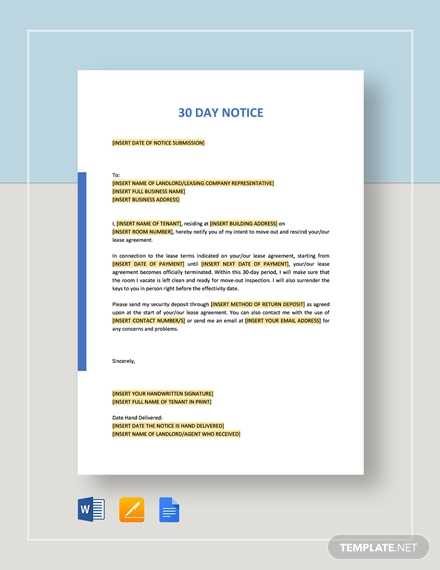
30 Day Notice to Landlord Template
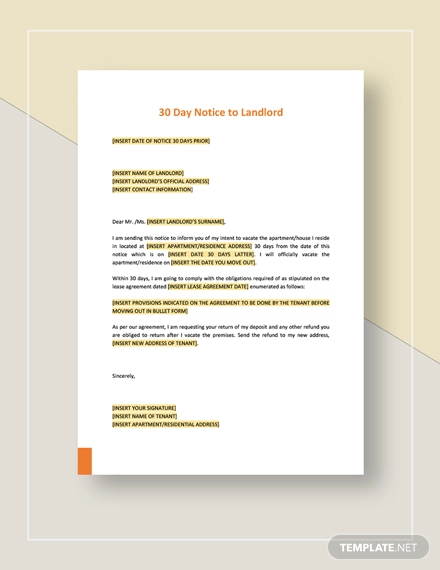
Charge Account Limit Raise Notice Template
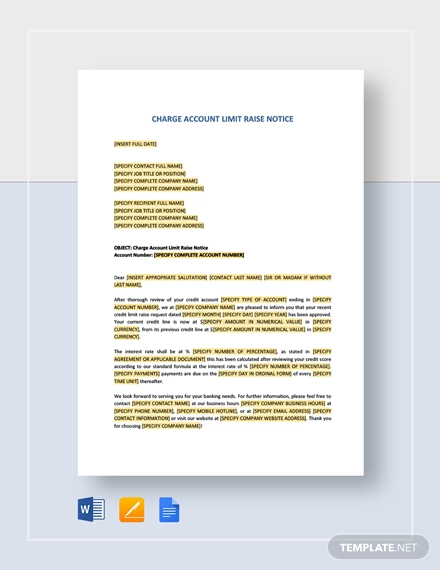
Apology for Accounting Errors and Past Due Notice Template
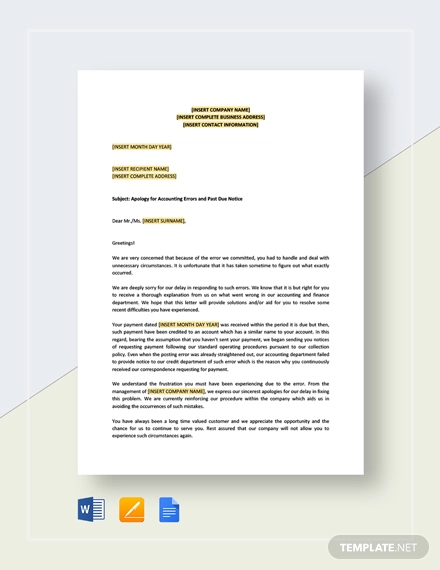
Disclosure Notice Template
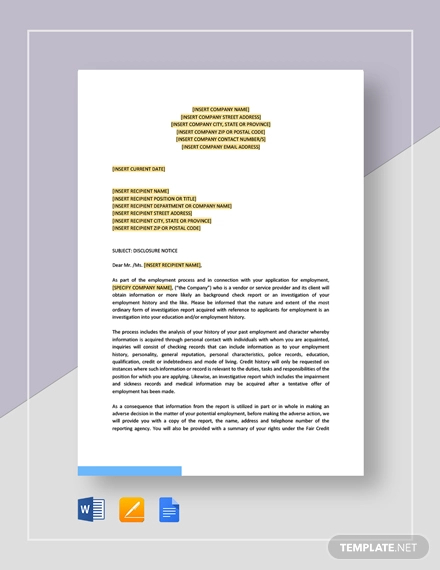
Simple Copyright Notice
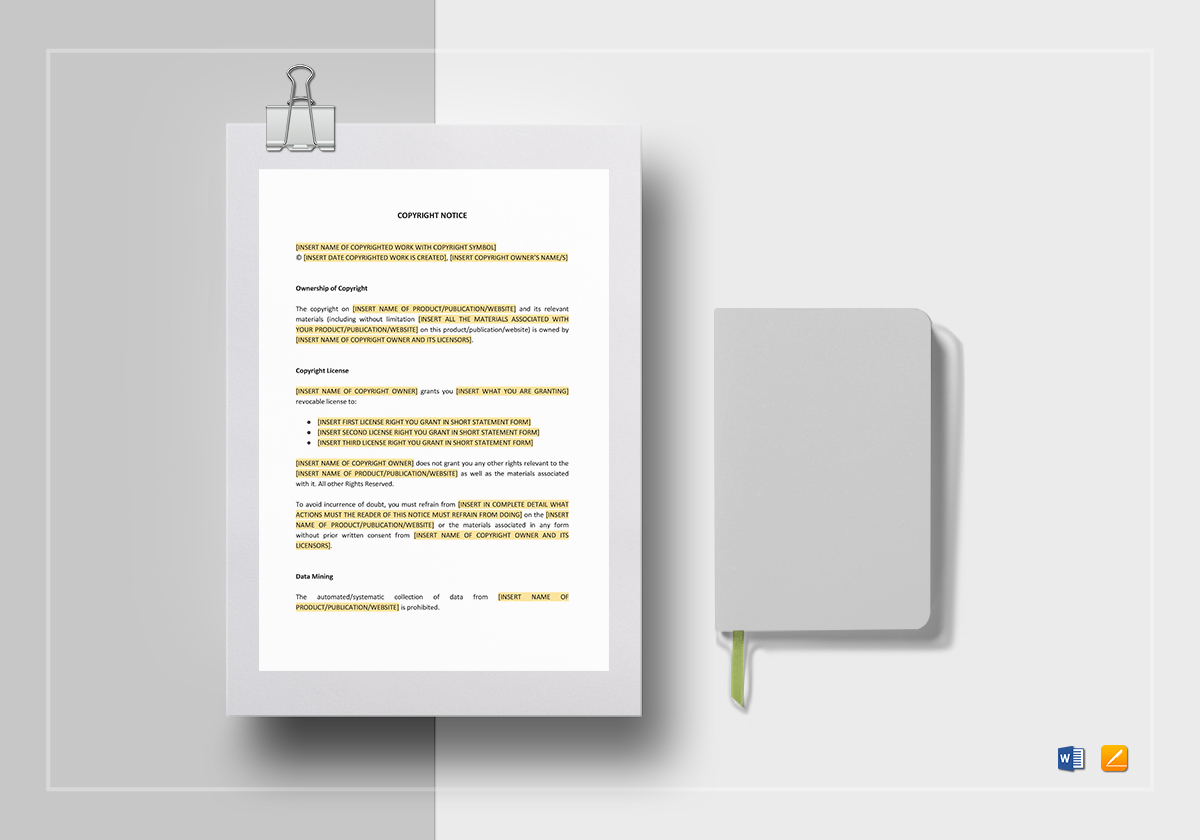
Notice of Special Meeting of Directors
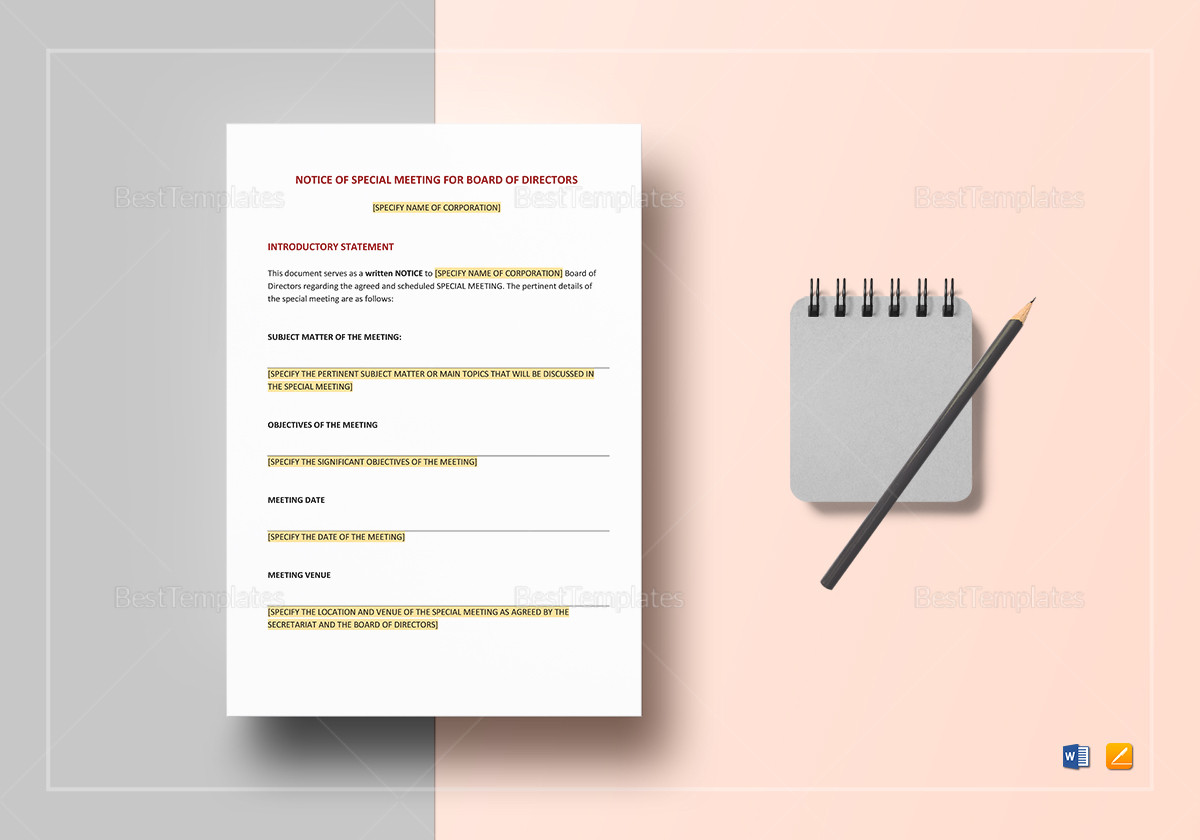
Notice of Disputed Account
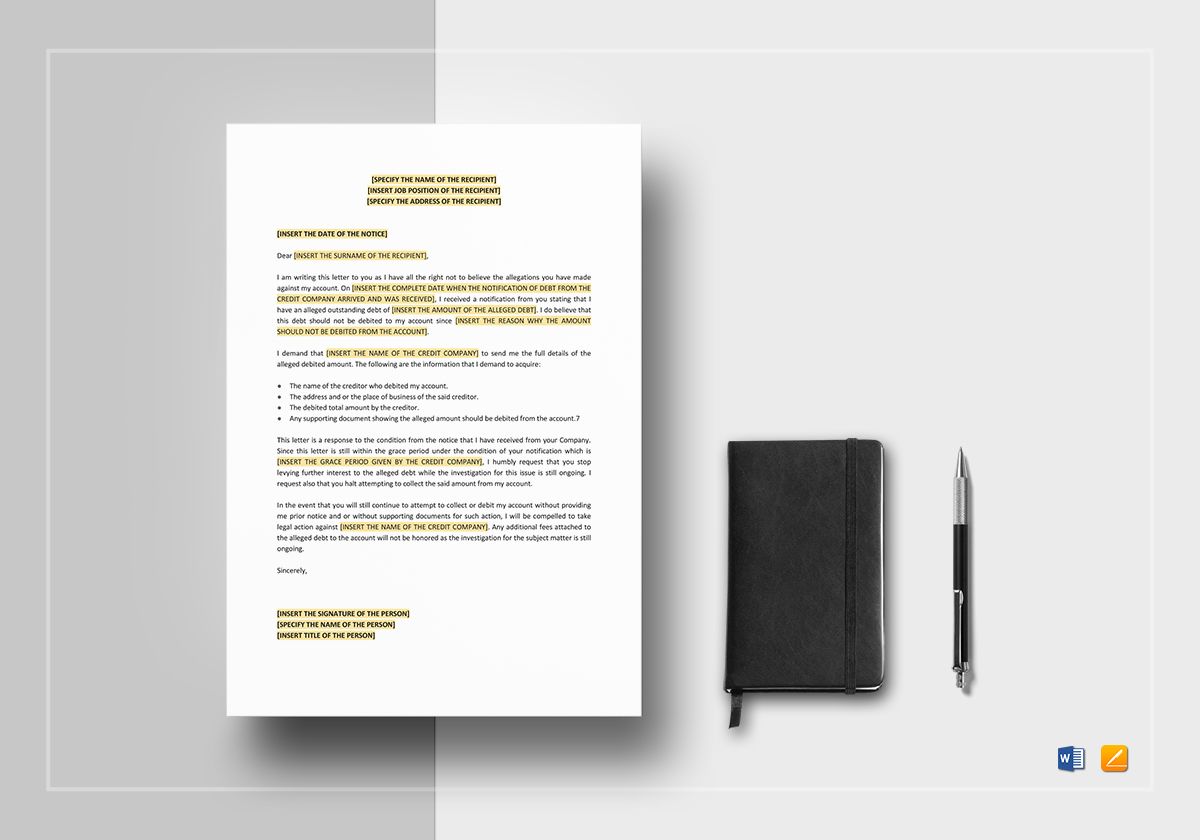
Notice of Overdue Payment
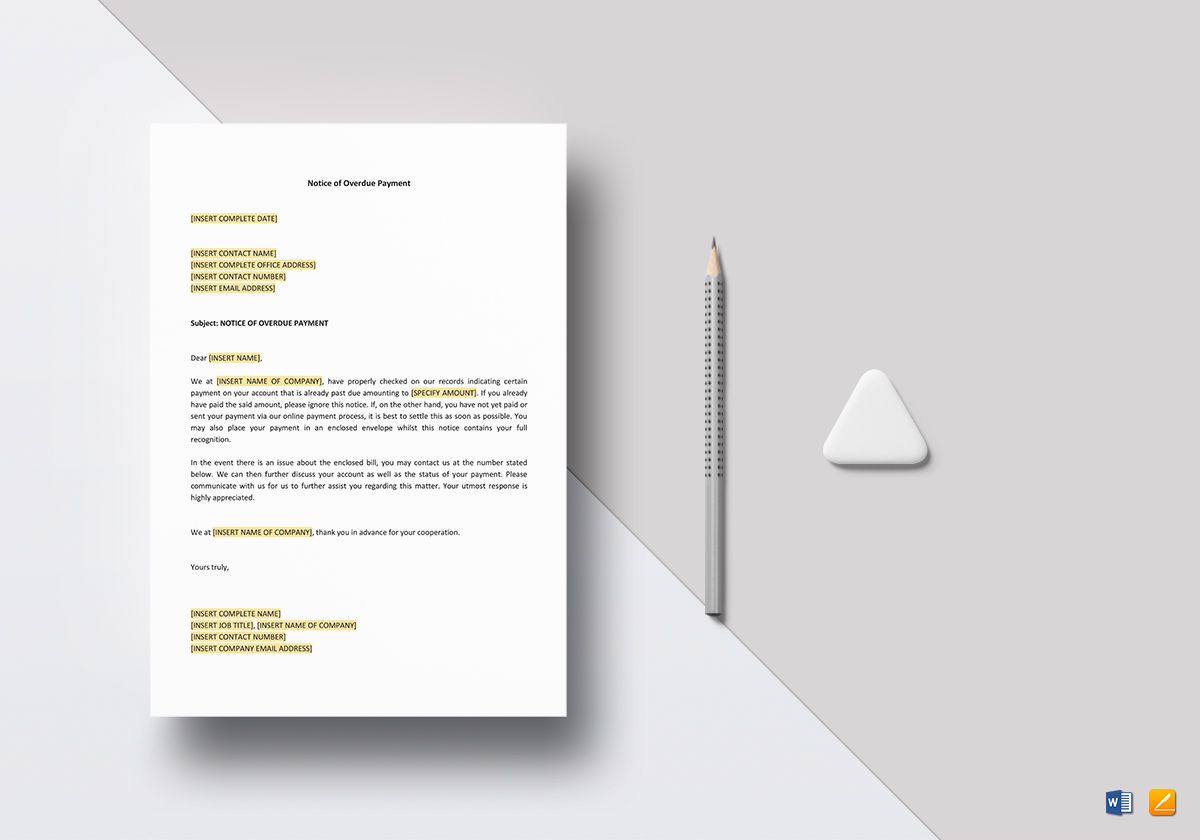
Notice of Intention to Sell Goods after Breach
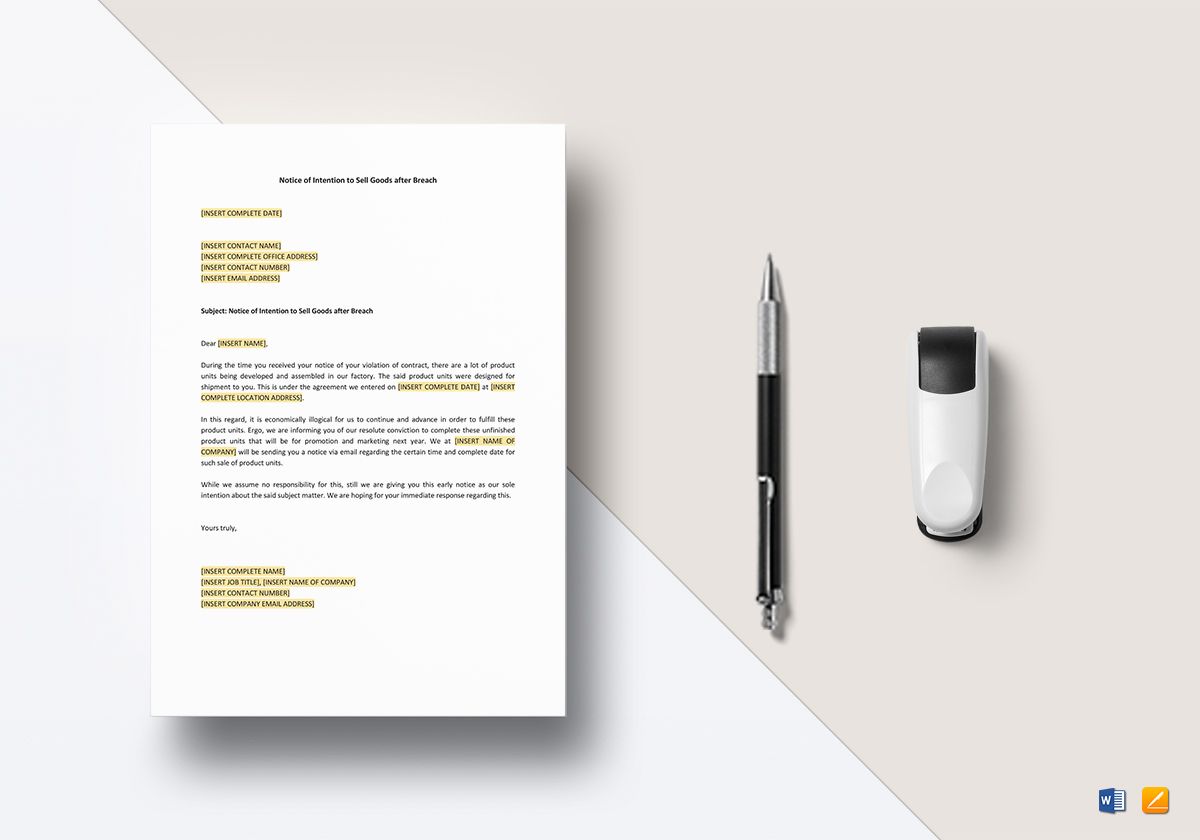
Notice of 10 Days before Collections on Delinquent Account
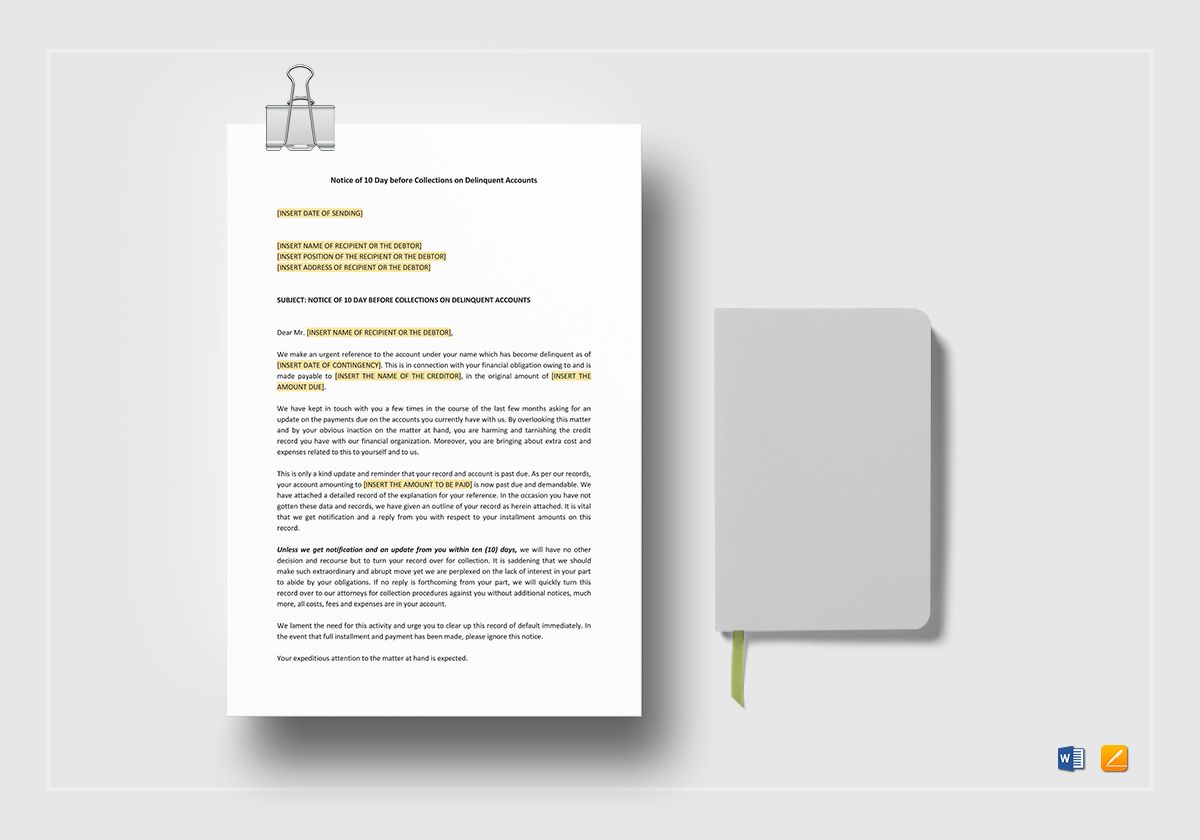
Notice to Bank to Stop Payment on Check
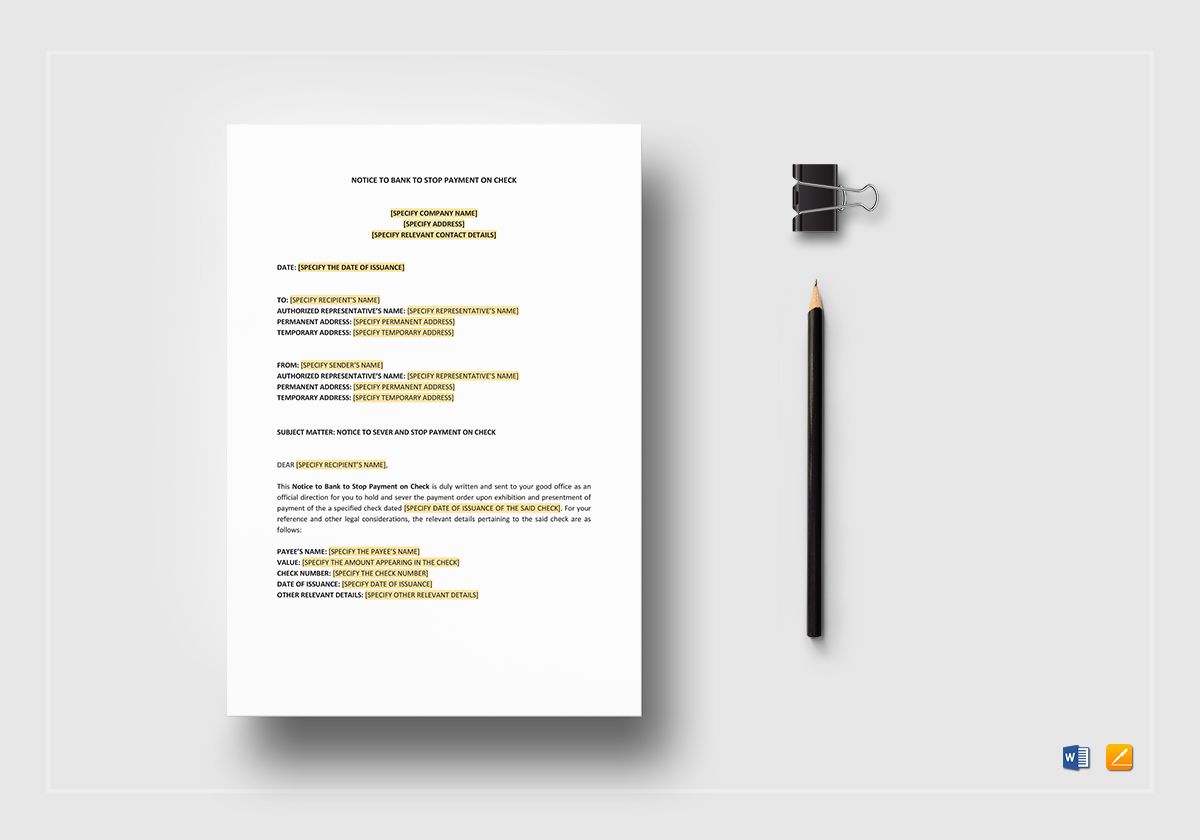
Disclosure Notice
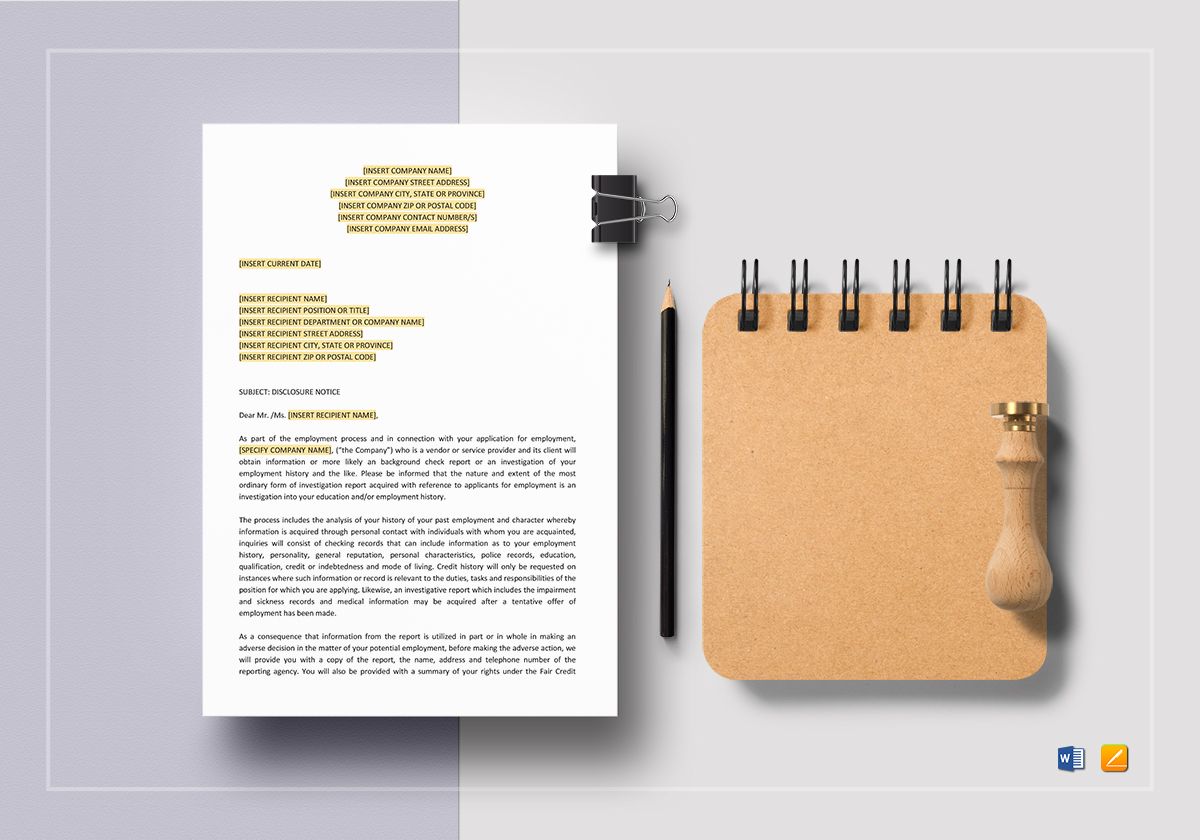
Notice of Intent to Exercise Options to Acquire Partnership Interest
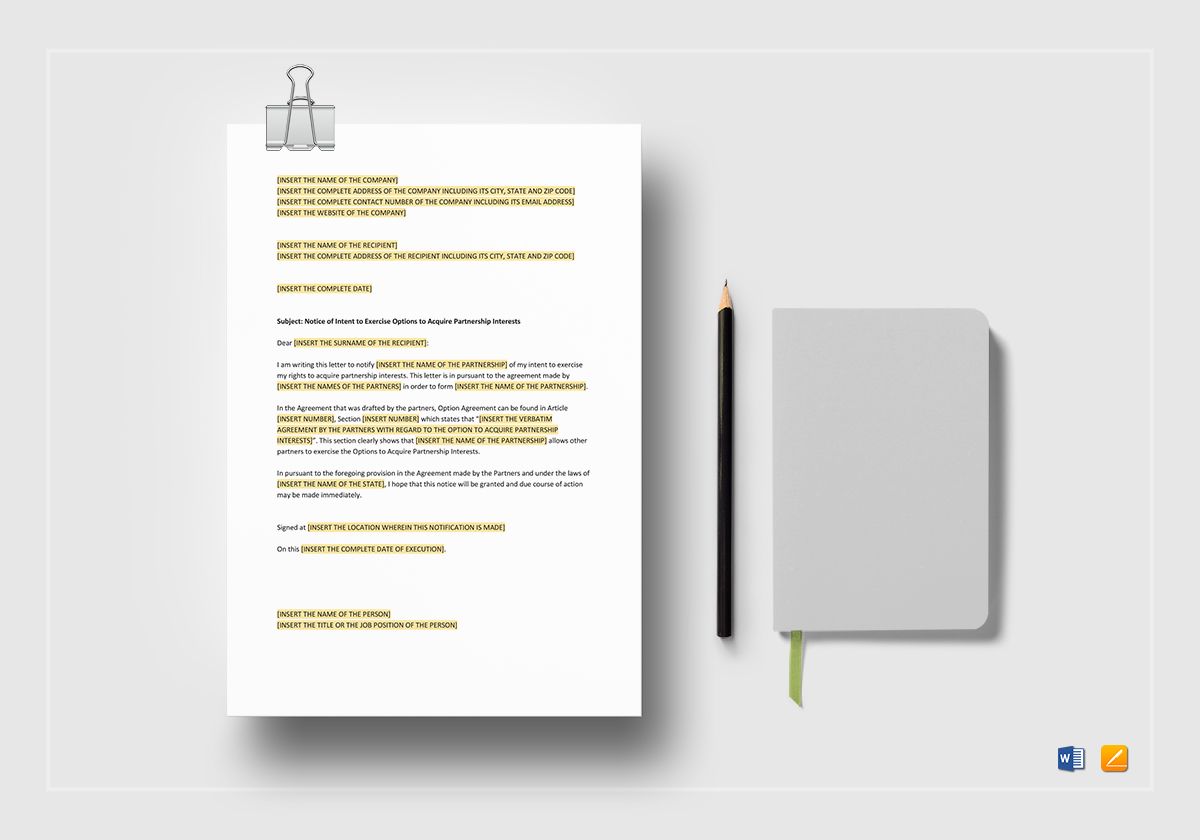
Notice of Meeting of Directors Special
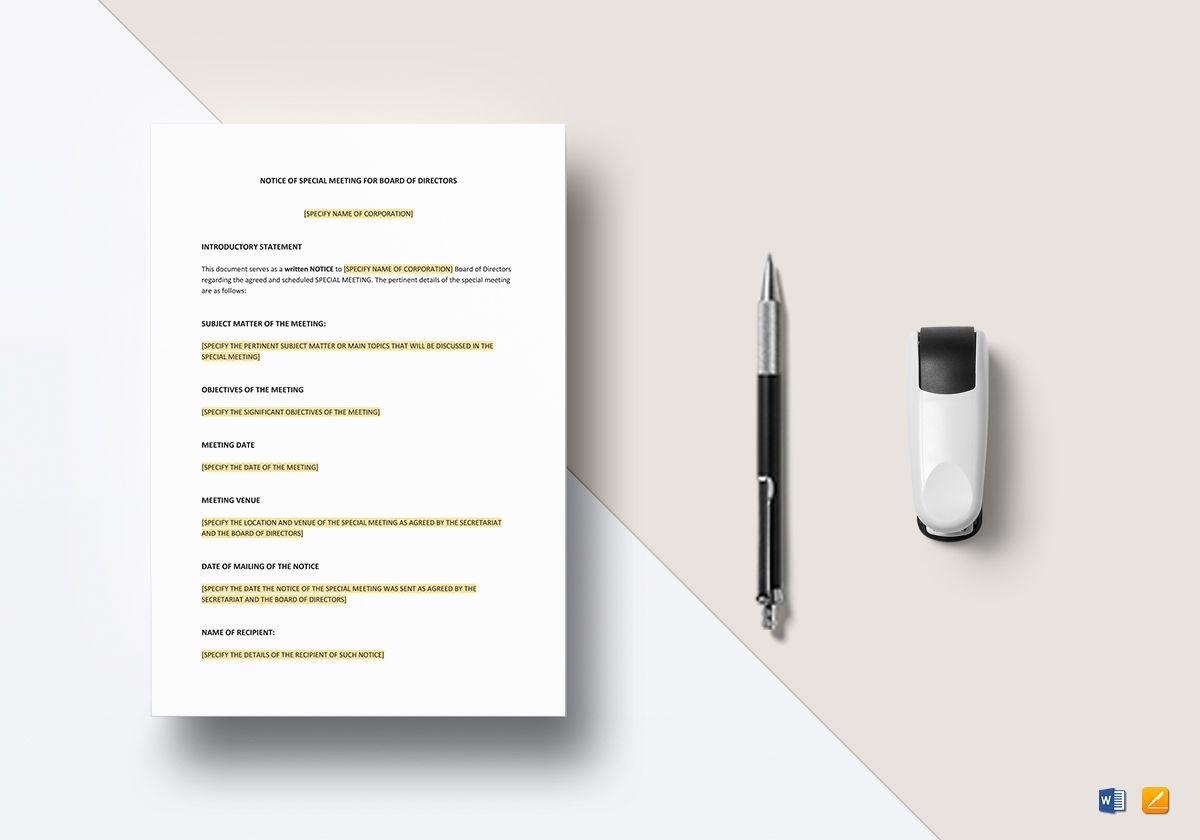
5-Day Eviction Notice
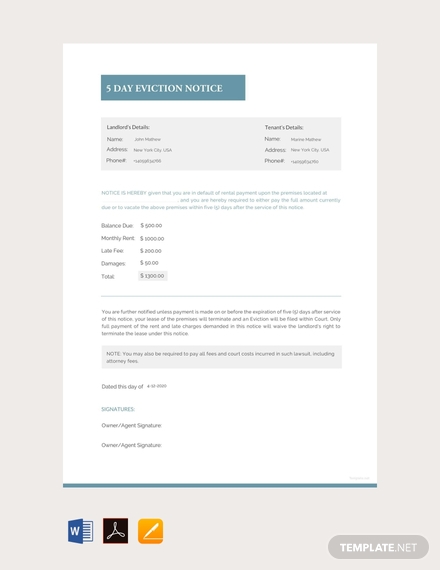
Blank Eviction Notice
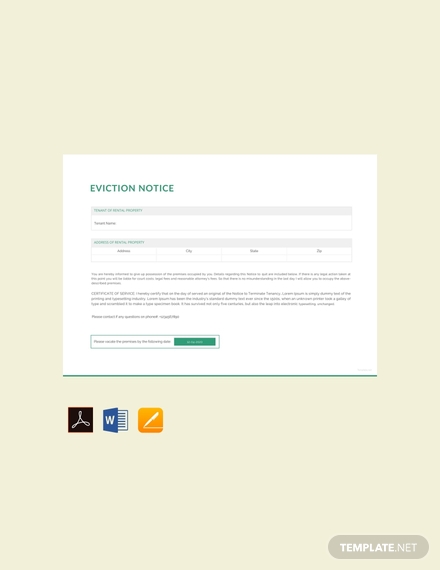
Eviction Notice for Unpaid Rent
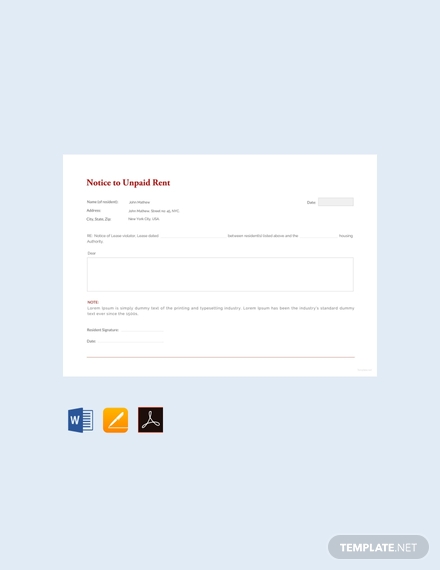
Move Out Notice to Tenant
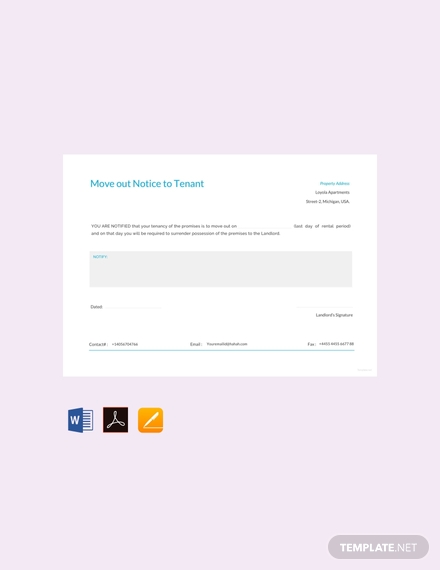
Notice to Quit
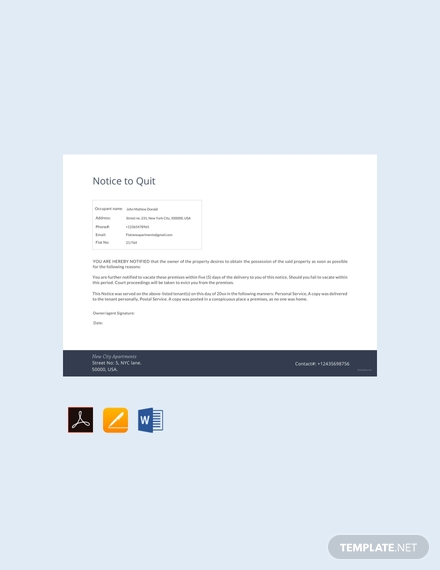
Sample Eviction Notice
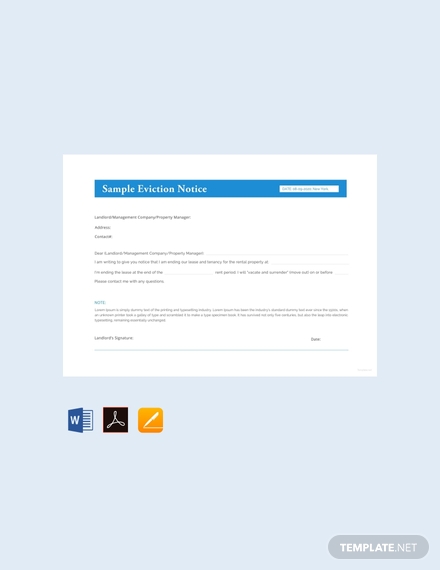
Death Notice
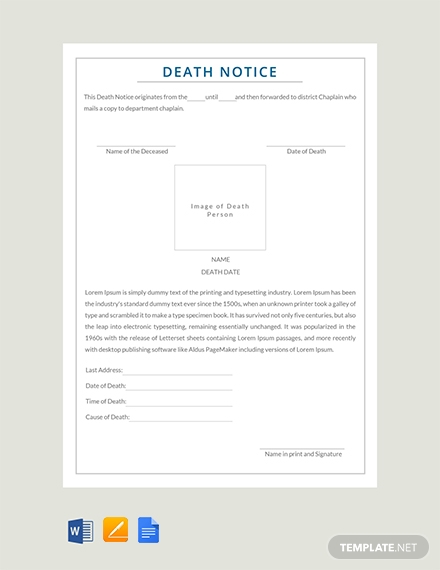
Termination Notice
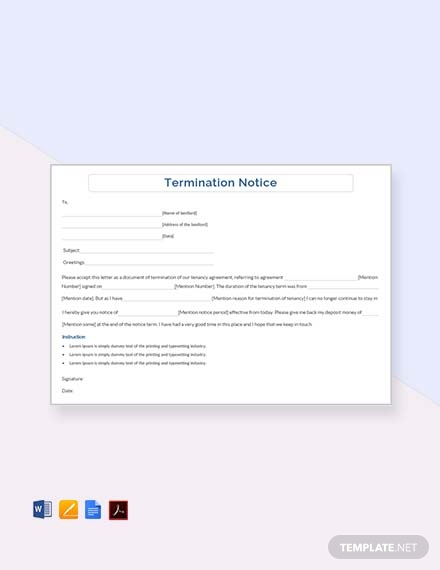
Written Notice Letter
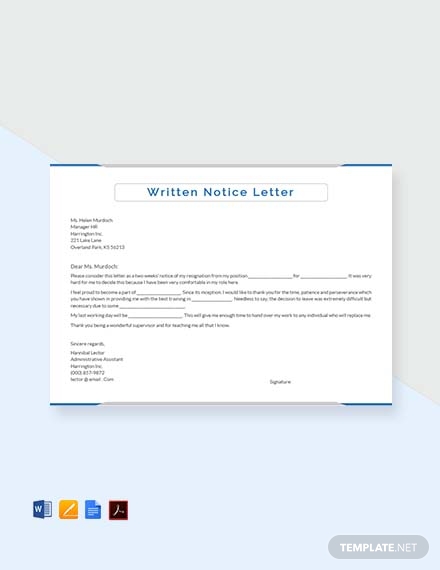
Eviction Notice for Roommate
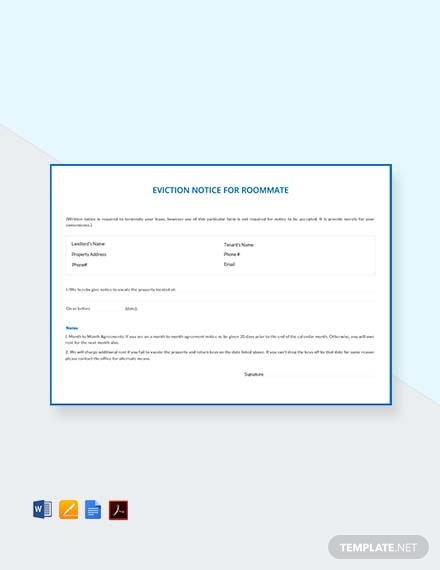
How to Write a Good Notice
A notice will only be effective if it is made well. Thus, in order for it to serve its purpose well, you should make sure that you are making it the right way. To help you create an effective notice, here are the steps that guide you:
1. Determine the purpose of the notice: If you haven’t figured your purpose as to why you should create a notice, you have to do it in this step so you will be able to figure out whether you should proceed making one or not. It is also in knowing the purpose for your notice that you can easily figure out the relevant information that you have to convey and how you should present it to the type of audience you are sending out the notice to.
2. Make an outline: If you have determined your purpose, you may now proceed to making an outline for your notice. It is in having an outline that you will have an overview of what your final draft and output will be presented. Having an outline will help you in making sure that your notice is tailored for its purpose and that also mean that you can easily take into consideration and put into account all its required details.
3. Incorporate essential elements: Now with a ready outline, you can already incorporate all of the necessary essential elements that will make up your notice. This is where you will be answering the 5 W’s and one H questions. Keep in mind to write using direct, succinct, and short but definitely complete and accurate sentences. This is where you will also prove your credibility to your intended readers. You may also see final notice examples.
4. Review and revise: Once you have input everything that you need to add in your notice, it is now time for you to review and revise everything as well. Most documents have this step as one of its final steps and the same thing goes for writing a notice. Aside from checking that there might be some grammatical errors and spelling mistakes, you also have to ensure the accuracy of the contents of your notice.
5. Affix signature: After everything is finalized, seal it by affixing the authorizing body or authorizing person’s signature. By affixing the signature, credibility is ensured for the contents of the notice. The intended readers or recipients of the notice to trust the contents of your notice. You may also see appointment notice examples.
Tips in Making a Notice That Works
Did you experience difficulty while attempting to make, perhaps, your very first notice? Worry no more for here are some tips you can follow in order to make a notice that will indeed work for you.
- Do not underestimate the power of the “notice” heading since this is the first thing that your intended readers will see from your notice.
- Always write in direct and straightforward sentences. Your intended readers might not have time to ready lengthy sentences. You might want to take a look at examples of short notices as reference.
- Ensure that the details you include are accurate and precise. You shouldn’t afford to make mistakes in the information you are disseminating because it can negatively affect the affected parties.
- If you are asked to follow a word limit, never even dare going beyond that word limit.
- In the introduction, make sure you are able to indicate what the notice is for.
- In providing information, make sure you provide the answers to the frequently asked questions so there will be little to no more room for questions.
- It cannot be avoided that the recipients of the notice will still have additional questions. This is why you must never forget including contact details where the recipients can reach out to should they have questions the current details in the notice can’t answer.
- To ensure credibility, do not make the mistake of not affixing the signature of the person who is authorized to do so. You may also see hr notice examples.
- Never forget reviewing and revising the contents of your notice. Who knows? You may have some errors and mistakes and it can also badly affect your credibility.
- A notice is a formal communication so always observe an equally formal language. Should you provide jargon, ensure that it can be understood by the target recipients of your notice.
- Organize the contents of your notice so you can make your notice appear presentable once it gets into the hands of your intended recipients.
- Speaking of intended recipients, you also have to make sure that you have specified your target group for your notice.
Types of Notices
Below is a list of common notices that are usually issued by landlords and employers.
Notices Given by/to Landlords
- Notice of Entry/Intent to Enter
- Notice of Intent to Dispose of Abandoned Personal Property
- Notice of Non-renewal
- Notice of Rent Increase
- Notice of Repairs/Renovations/Outages
- Notice of Transfer of Ownership/Management
- Notice to Cure or Quit
- Notice to Pay or Quit
- Unconditional Quit Notice
Notices Given by Employers
- Contractual Notice
- Dismissal without Notice (summary dismissal)
- Statutory Notice
Notice Standard Sizes
The standard sizes for notices come in US Letter Size and A4 Size. The US Letter Size comes in 215.9 × 279.4 millimeters while the A4 Size comes in 210 × 297 millimeters. It is important that you should know the standard sizes that are used for printing a notice because in the event that you need to make, print, and disseminate one, you are following the standard. Aside from that, even as simple as knowing the standard size of notices can actually come in handy in whatever job position you land yourself in the corporate world.
We hope that this article has been helpful for you in creating a notice. Creating one is not really that difficult since all you need is to know the right steps and be guided with the right tips in order to create one. We also hope that the notice examples and templates that we have provided in this article have been helpful for you in getting started. Do take note that all of these templates are easy to edit and download.


